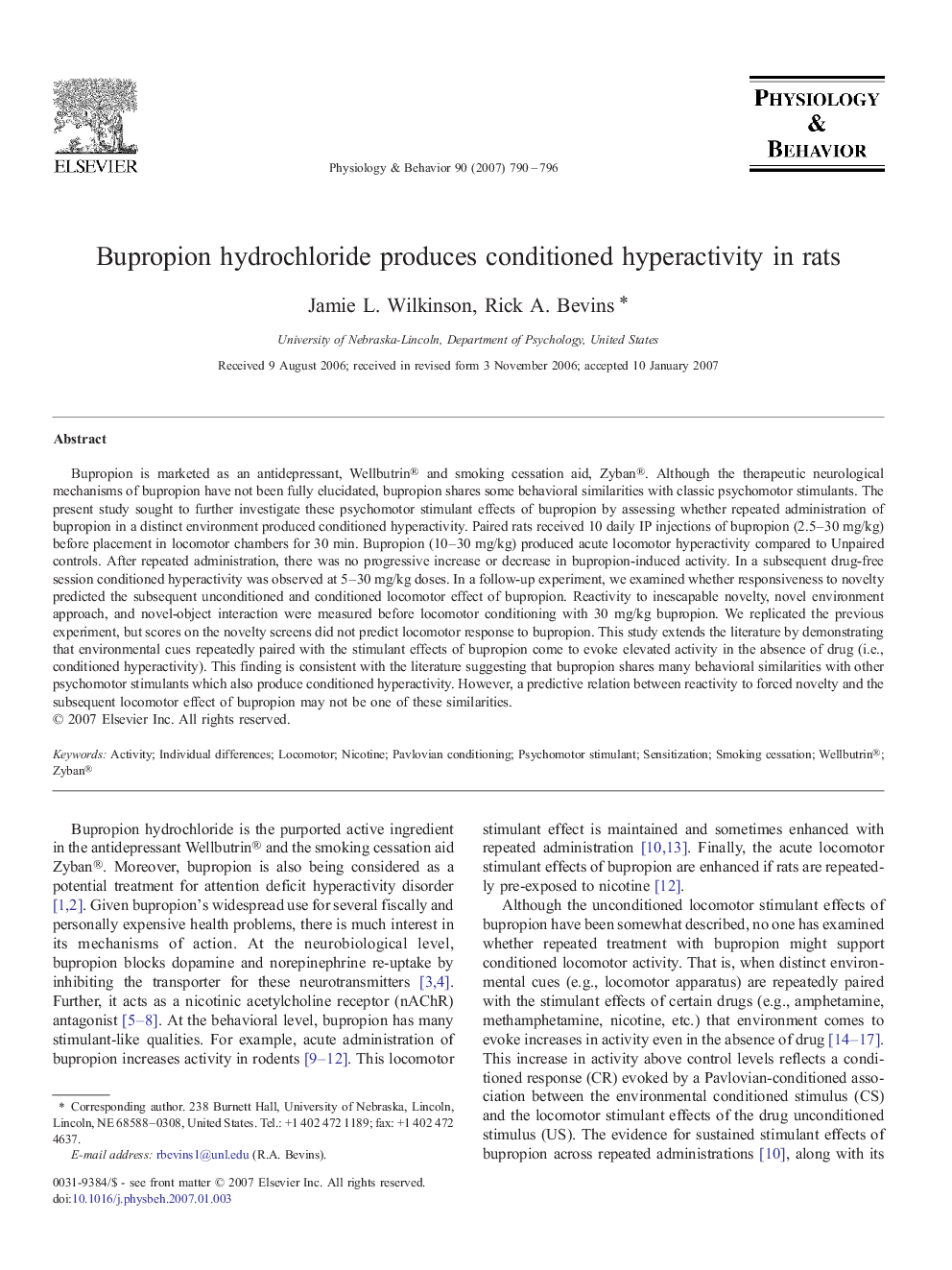| Article ID | Journal | Published Year | Pages | File Type |
|---|---|---|---|---|
| 2845880 | Physiology & Behavior | 2007 | 7 Pages |
Bupropion is marketed as an antidepressant, Wellbutrin® and smoking cessation aid, Zyban®. Although the therapeutic neurological mechanisms of bupropion have not been fully elucidated, bupropion shares some behavioral similarities with classic psychomotor stimulants. The present study sought to further investigate these psychomotor stimulant effects of bupropion by assessing whether repeated administration of bupropion in a distinct environment produced conditioned hyperactivity. Paired rats received 10 daily IP injections of bupropion (2.5–30 mg/kg) before placement in locomotor chambers for 30 min. Bupropion (10–30 mg/kg) produced acute locomotor hyperactivity compared to Unpaired controls. After repeated administration, there was no progressive increase or decrease in bupropion-induced activity. In a subsequent drug-free session conditioned hyperactivity was observed at 5–30 mg/kg doses. In a follow-up experiment, we examined whether responsiveness to novelty predicted the subsequent unconditioned and conditioned locomotor effect of bupropion. Reactivity to inescapable novelty, novel environment approach, and novel-object interaction were measured before locomotor conditioning with 30 mg/kg bupropion. We replicated the previous experiment, but scores on the novelty screens did not predict locomotor response to bupropion. This study extends the literature by demonstrating that environmental cues repeatedly paired with the stimulant effects of bupropion come to evoke elevated activity in the absence of drug (i.e., conditioned hyperactivity). This finding is consistent with the literature suggesting that bupropion shares many behavioral similarities with other psychomotor stimulants which also produce conditioned hyperactivity. However, a predictive relation between reactivity to forced novelty and the subsequent locomotor effect of bupropion may not be one of these similarities.
